Samaaro + Your CRM: Zero Integration Fee for Annual Sign-Ups Until 30 June, 2025
- 00Days
- 00Hrs
- 00Min
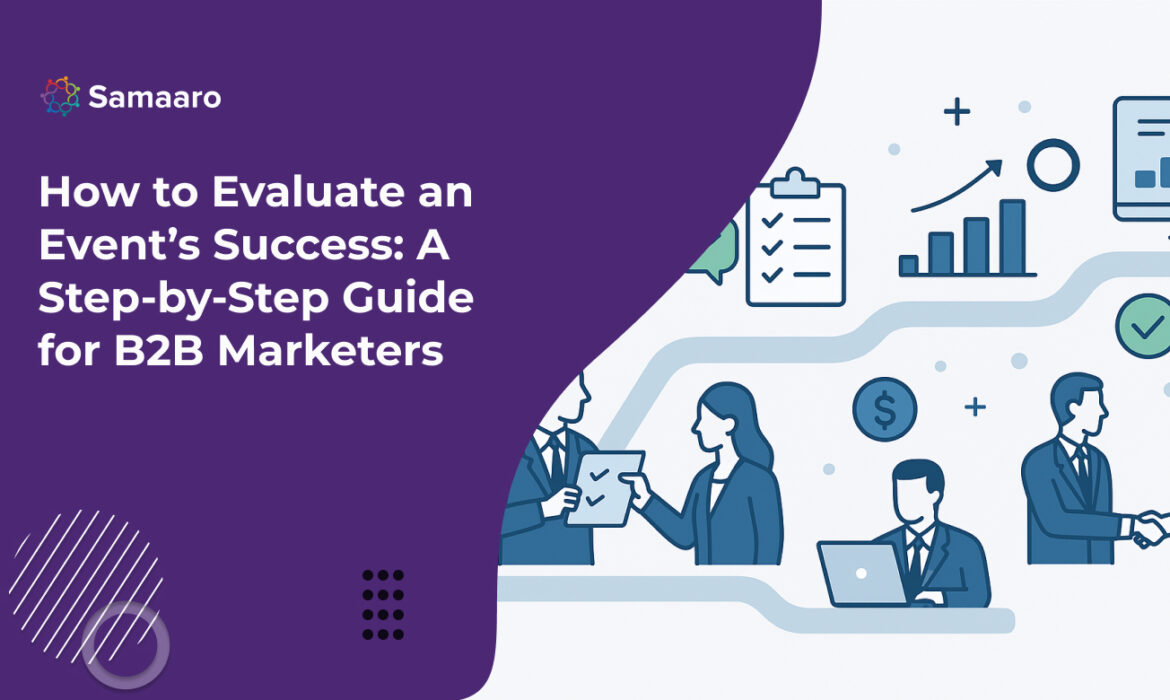
B2B events aren’t simple standalone experiences. They travel along extended sales cycles, interact with multiple stakeholders, and layer objectives from lead generation to thought leadership to customer retention. Whereas with consumer events ticket sales or footfall might be the primary mark of success, B2B event success is multidimensional.
That is why having a structured evaluation process is essential. If event teams have no framework for evaluation, they have the risk of drowning in unconnected numbers and anecdotal feedback. But with a structure, marketers will be more effectively able to connect event performance back to business objectives, validate business ROI to leadership, and continually enhance strategy for future events.
You should think of evaluation as the last component of the event lifecycle, the connection between what you executed, and what you are going to do better next time.
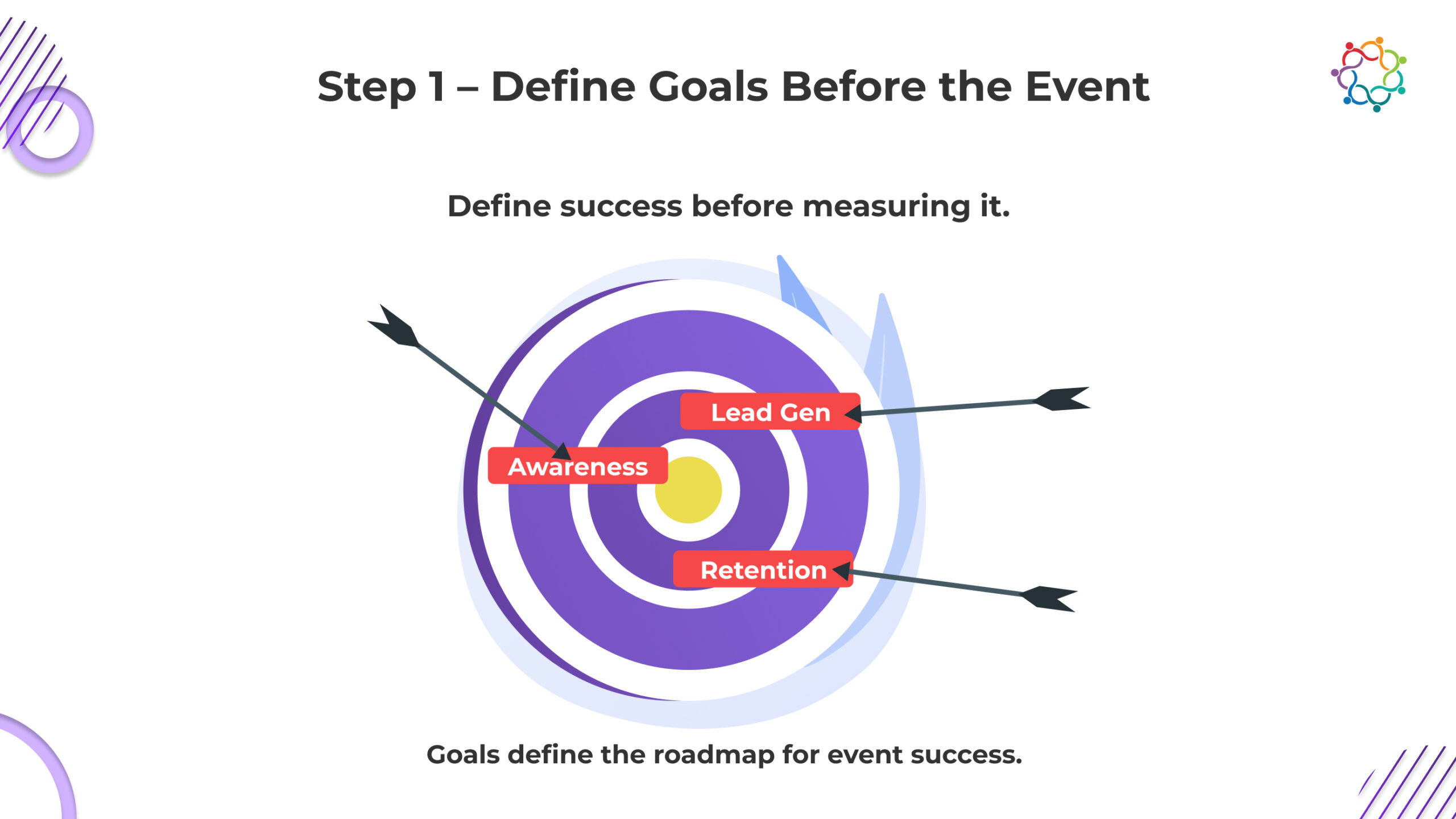
Evaluation doesn’t just start at the end of the event. It starts before you even promote. For the report to have meaningful impact, goals must be clear from the outset.
For B2B marketers, goals typically fall into three high-level categories:
A clearly defined goal is your North Star. Without a clearly defined goal every metric becomes noise.
Quantitative data will answer your “what happened?” It provides measurable, objective signals of performance.
The fundamental quant metrics to track for B2B events are:
These numbers are a starting place for evaluation but as much as the data helps, it does not tell you why the impact what it was.
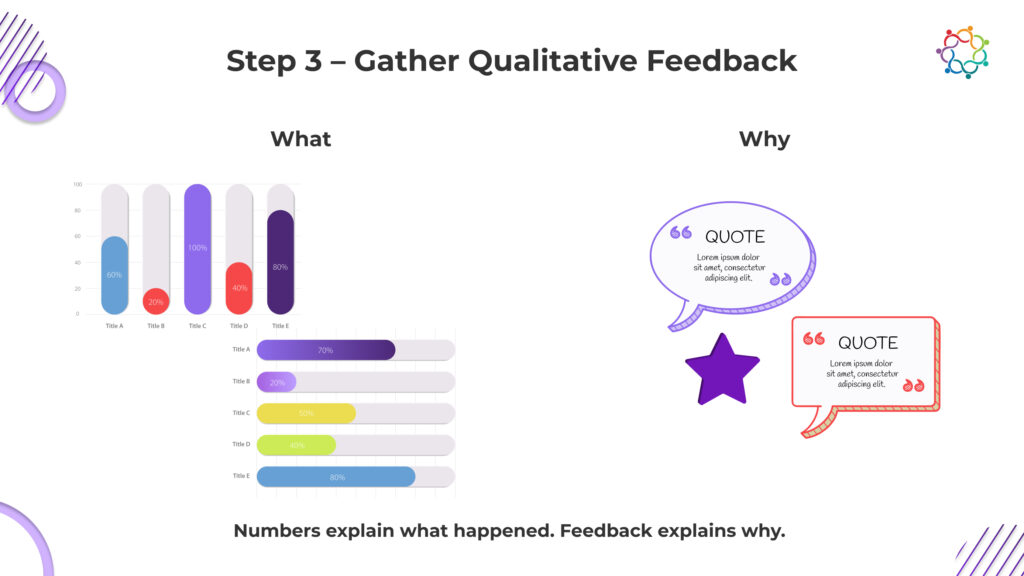
Data can indicate 300 attendees joined the webinar but only by way of qualitative feedback do you understand if it was thought of value.
Some core qualitative inputs are:
This feedback layer allows cold numbers to breathe and provide meaning. It adds human context to measurable outcomes.
This is where the process changes from collecting data to interpreting findings. Numbers without context can be misleading and stories without data can lead to bias in decision making. The most effective analysis combines quant and qual.
For example,
So, both are providing clear and actionable advice: rethink the content design, for your technical sessions.
At this stage it is also important to reflect on the outcomes in relation to strategic targets. What was the impact on key accounts? What was the reach in target markets? Did you generate enough qualified leads to warrant the expense?
The last step in evaluation is not the report, it’s the playbook. I have tried to distil out lessons so that those lessons are not just captured in a file but rather are clearly understood lessons that will play in the next campaign.
Best practices in the playbook:
This step is intended to take evaluation from a process to a system of ongoing improvement in that each event leads to a smarter next event.
Even seasoned/practice teams experience challenges when evaluating their events. Some very common things not to do include;
Avoiding these mistakes means that you are positioned to evaluate strategically, as opposed to superficially.
Evaluating using separate spreadsheets, survey tools, and CRM exports is not an efficient use of resources. Enterprises need a single system that can align steps accordingly.
Samaaro provides that:
Instead of amalgamating multiple data points, Samaaro provides a step-by-step evaluation framework in one platform making it easier for B2B teams to engage in systematic evaluation.
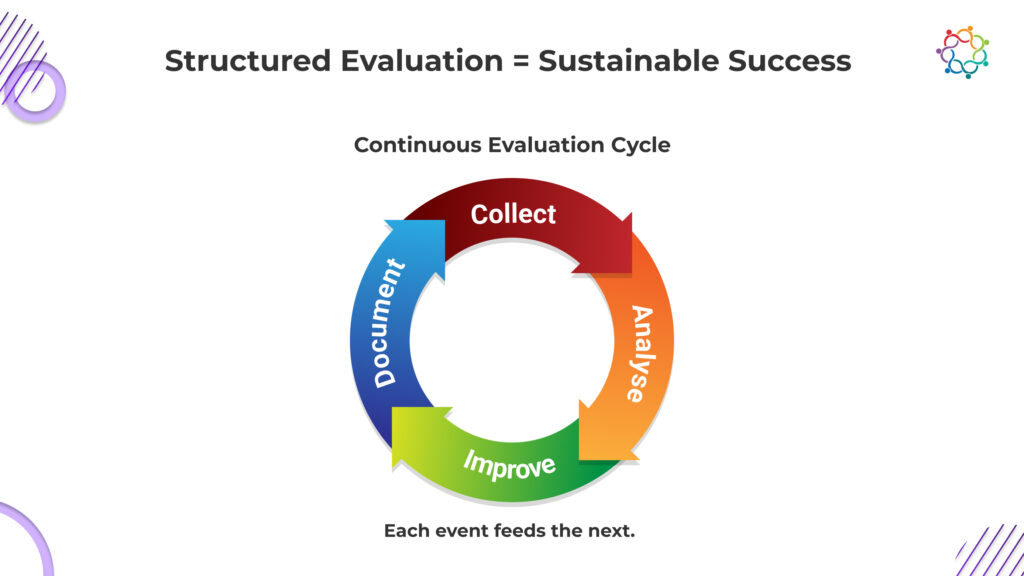
Event evaluation is not just a new step in the journey; it is the difference between one-off activities and a scalable growth engine.
For B2B marketers, a step-by-step evaluation framework:
Event and marketing teams can run outcome evaluations smarter, faster, and impactfully. So, that every event is not only successful but executes the enterprise strategy supporting that success.
Don’t want to build your own evaluation process? Ready-made evaluation frameworks are available in the form of a downloadable Post-Event Evaluation white paper or check out Samaaro’s analytics which every enterprise should consider.

Built for modern marketing teams, Samaaro’s AI-powered event-tech platform helps you run events more efficiently, reduce manual work, engage attendees, capture qualified leads and gain real-time visibility into your events’ performance.
Location
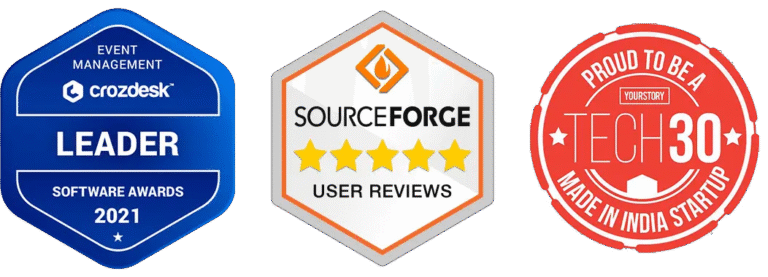
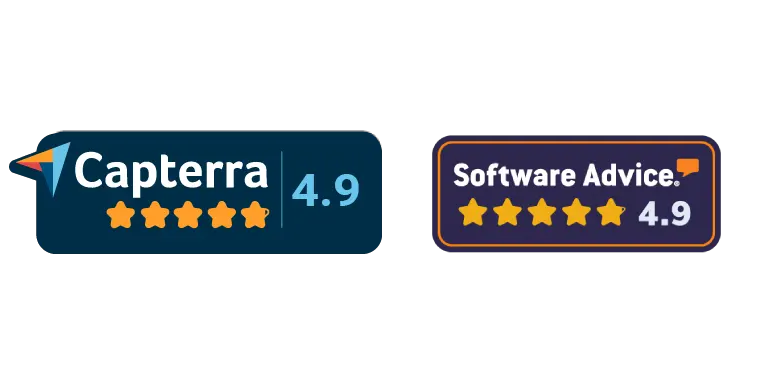
© 2026 — Samaaro. All Rights Reserved.